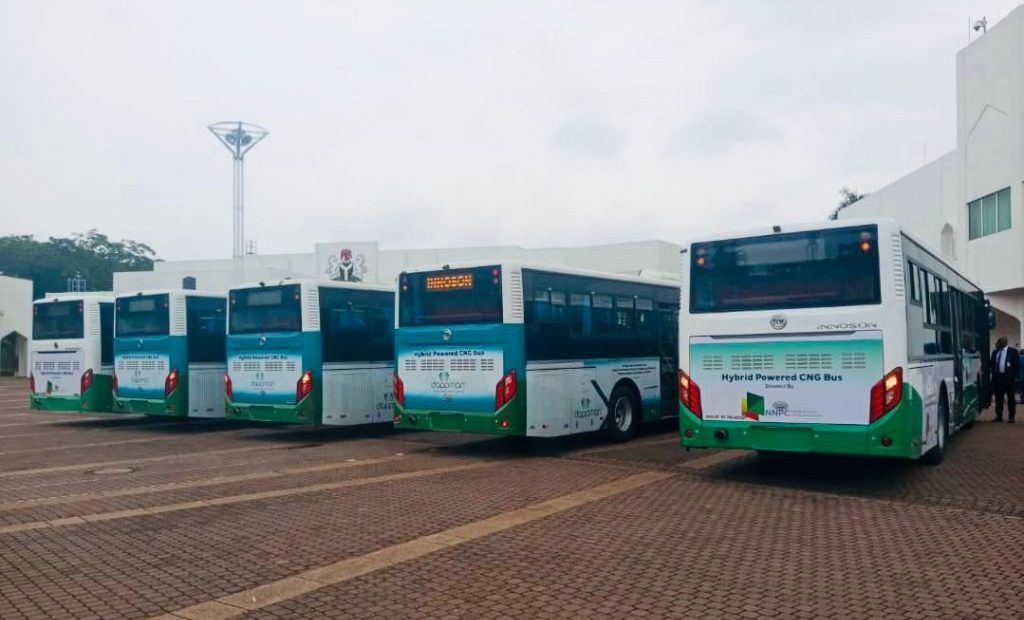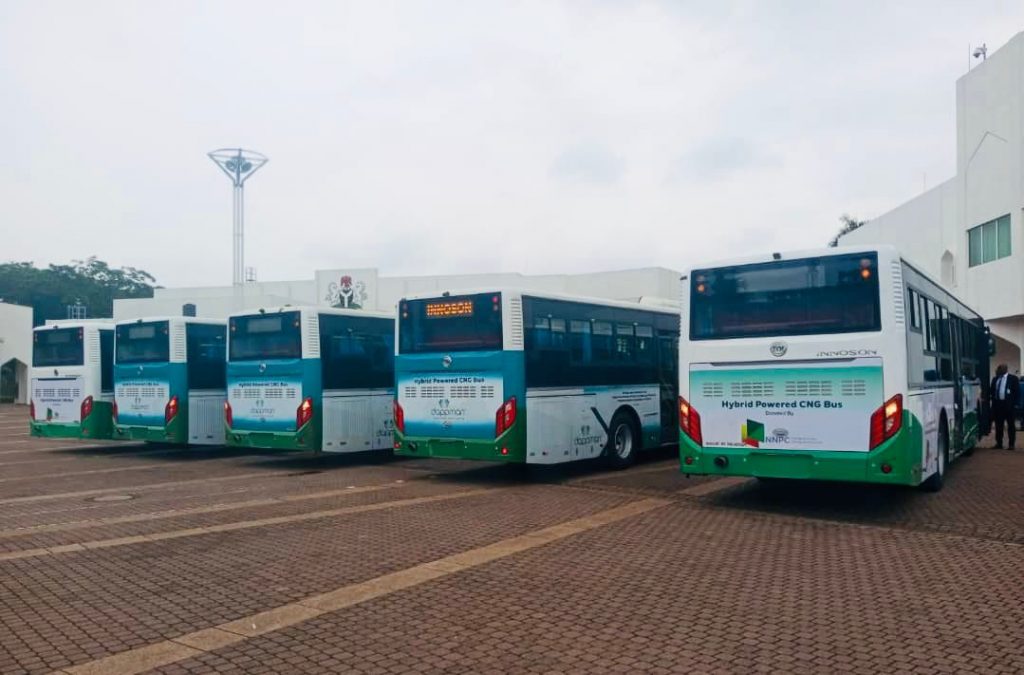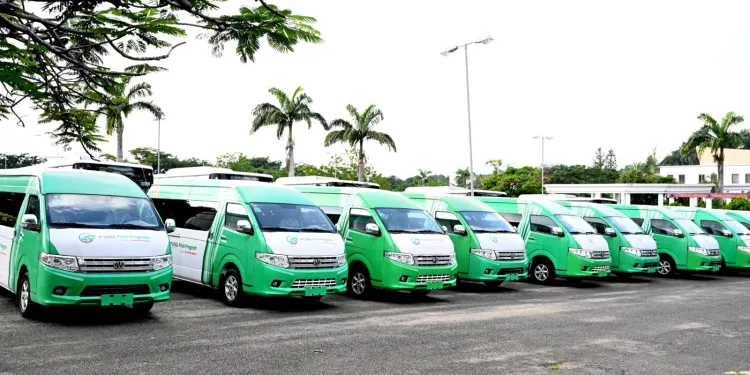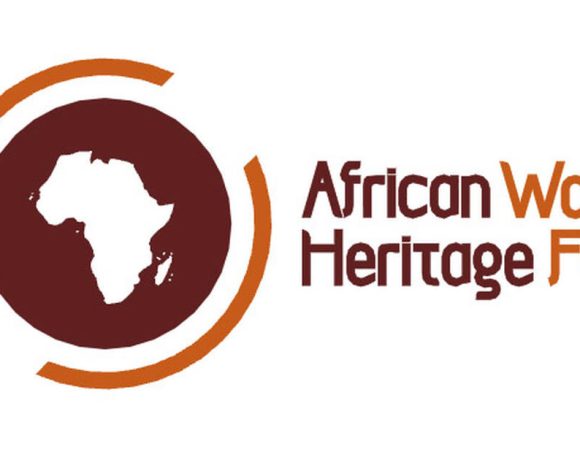Federal Government launches CNG buses in 20 federal universities


On Thursday, the federal government officially began the rollout of Compressed Natural Gas-powered buses to universities across Nigeria.
The launch began with the University of Abuja as part of its strategy to reduce high transportation expenses and encourage the use of cleaner energy on campus.
Named ‘CNG-Sprout,’ this marks the first stage of the ‘Project CNG Special Palliative Relief for Universities Transportation’ and will be extended to 20 federal universities nationwide.
During the commissioning on Thursday, the Minister of State for Petroleum Resources (Gas), Ekperikpe Ekpo, referred to the project as a timely response to both the country’s economic situation and energy transition goals.
“‘I hereby commission the Project CNG-Sprout buses for deployment to university campuses across the country. May they serve as vehicles not just of transport but of hope, relief, and national progress,’” the minister said in his prayer.
He stated that the program was created to offer immediate support to students while aligning with President Bola Tinubu’s broader goals for affordable energy, environmental care, and transport system changes.
“‘As we navigate energy reforms and shift towards cleaner fuels, cushioning the impact on vulnerable populations, particularly students, remains a key national priority,’” Ekpo added.
The Midstream and Downstream Gas Infrastructure Fund is implementing the project in collaboration with FEMADEC Energy Limited, which was praised for completing the initial phase of the rollout on time.
It’s worth recalling that in 2024, the government allocated N122 billion to six local companies via the MDGIF to enhance gas infrastructure and promote the use of gas in different sectors.
The minister emphasized that the introduction of CNG buses is just the beginning of a larger strategy to transform the public transport network in Nigeria.
“‘In the coming months, we will be unveiling further incentives for CNG vehicle conversion, expanding refuelling infrastructure and supporting local assembly and innovation in the CNG value chain. This is not just a transport solution. It is a jobs and industrialisation pathway’,” he declared.
Oluwole Adama, the MDGIF Managing Director, in his remarks, thanked the President for providing strong “executive steer” through actions such as Executive Order 40 and the Presidential Initiative on Compressed Natural Gas.
He highlighted that introducing CNG refuelling infrastructure in 20 universities was a major accomplishment given the limited time and resources.
“‘As we unveil the first four facilities, here in Abuja, we must congratulate FEMADEC for delivering under pressure and against tight timelines,’” Adama said.
He promised that MDGIF would keep supporting projects that expand local gas use and drive economic growth through key infrastructure investments.
Meanwhile, the PiCNG Chief Executive Officer, Michael Oluwagbemi, stated that the initiative marked the fulfilment of President Tinubu’s promise made after taking office to bring CNG buses to tertiary institutions.
“‘Through this partnership, we are delivering more than just buses and tricycles. We are delivering hope, innovation, and a future-forward solution to the mobility and energy challenges facing our academic communities,’” Oluwagbemi said.
He explained that the effort is creating more than an environmentally friendly transport option—it is building an innovation-supporting ecosystem with economic opportunities.
Maruf Olatunji Alausa, the Minister of Education, was recognized for his role in ensuring vice chancellors from all 20 participating universities engaged with the program and for connecting it to performance standards of the institutions.
“‘This is the first of 20 of our federal institutions that will get this. But let me tell you, look into the future, 24 months from now, literally, and I mean literally, all our tertiary institutions in the country, universities and colleges of education alike, will have each of these amenities on campus.’”
The CNG-Sprout initiative aims to drastically lower student transport costs and help Nigeria reduce its carbon emissions, aligning with international climate targets.








